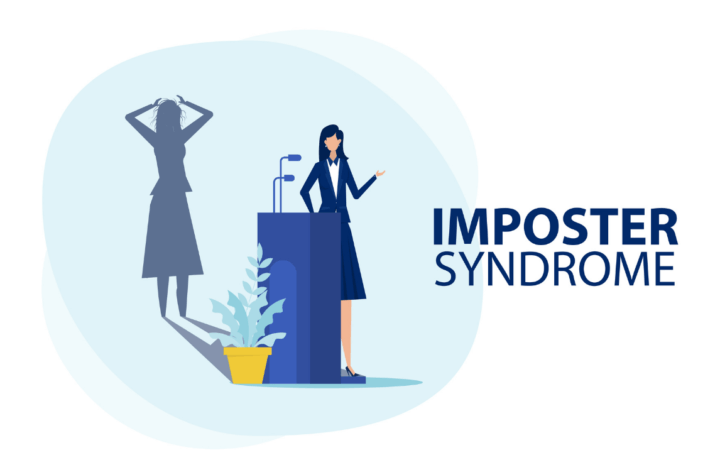A frequent, yet unstated and shared notion amongst high achievers, is a feeling that their accomplishments are the result of luck and not from their hard work. Additionally, there are fraudulent feelings of self-doubt and unworthiness to be in the position they currently hold, as if they do not measure up. The term for this predicament is called impostor syndrome. Unfortunately, this self-doubt grows in people entering senior positions and increases the feeling of fear, shame, and embarrassment of being overwhelmed because they are expected to know everything.
Imposter Syndrome 101
“Impostor syndrome” comes from a 1978 research paper by psychologists Pauline R. Clance and Suzanne A. Imes. In their research they studied people who struggled to feel deserving of their own successes and accomplishments instead of attributing them to timing and good luck. Impostor syndrome’s presence occurs at nearly every level of an organization. Research shows that about 70% of people experience impostor syndrome at least once in their lives, according to Brooke McCord, a life and career transition coach. Disproportionately, the feeling impacts women and minority groups; anyone who has the pressure of accomplishing “firsts.”
7 Ways to Step Beyond the Chains
Overcoming this feeling and tackling impostor syndrome requires both a learning and development strategy to address this occurrence in individuals and within an organization. Both mentoring and coaching provide an opportunity to discuss impostor syndrome and ways to step beyond the invisible chains it creates. For those experiencing impostor syndrome there are multiple ways to step past the feeling and grow from it.
- Sometimes work is best done by just diving into the moment. Constantly seeking to learn more and more is also a form of procrastination. Practice just-in-time learning; acquiring the skills when needed them rather than hoarding knowledge and certificates.
- Release the shame in asking for help. Seek advice from a co-worker on learning something new.
- Mentor others or volunteer, it’s a great way to discover gained expertise, it benefits others, and reduces fraudulent feelings.
- Learn to take constructive criticism and understand that it is not personal. As stated in “The Godfather,” “it was business, not personal.” Take feedback for the gift that it is, remain humble, and learn from it. It’s easy to believe the negative pieces of advice but what if that time was spent believing the positive things? Also, instead of seeking external validations from working, become attuned to internal validations and nurture confidence in areas both in and out of work.
- Look at efforts as a work in progress. To accomplish greatness involves lifelong learning and skill building and by planning ahead there are specific, changeable behaviors for improvement over time.
- Do not immediately swear off things that do not come easy. Take small steps past the uncomfortable parts and normalize the activity. Briefing and presentations are great examples where impostor syndrome sneaks in. Instead of saying “I’m not good at public speaking,” work to increase and grow your ability to present in front of a growing number of people; eventually the audience will grow and the feeling will subside.
- Lastly, reach out to trusted peers and co-workers for support. This is a positive way to combat against the feelings of impostor syndrome. This allows for the acceptance and validation of praise, when given, and treating mistakes as learning opportunities.
Move Beyond Imposter Syndrome
In the end, moving beyond imposter syndrome allows co-workers to see the value in themselves and what they bring to the team. Stop people from selling themselves short and help others see their value beyond their own vision of themselves. This creates a better work environment for all.



